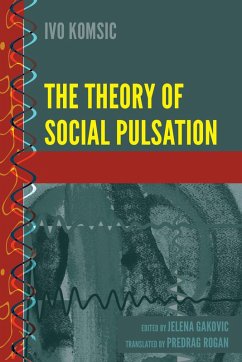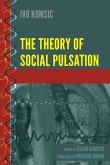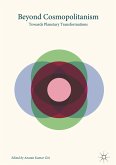The Theory of Social Pulsation is a new social theory elaborated from the social phenomenology and philosophy of sciences' standpoint. It represents an innovative interpretation of social phenomena postulated as active states of social actors including individuals, social groups, and social facts (organizations, institutions, systems). As an active state of social actors, pulsation is defined by eight variables that constitute social phenomena as a whole: (a) intention, (b) reaction, (c) reflection, (d) communication, (e) institutionalization, (f) internalization, (g) structuration, and (h) innovation.
Ivo Komsic argues that social states are pulsating and within those states, social causality is transferred from one social actor to another. Social actors continuously transfer social causality from one to another, depending on the intensity of its pulsation. Balanced or unbalanced, functional or dysfunctional, consensual or imposed, a system will be classified in the presence or absence of one of these phenomena, by its greater or lesser intensity. The theory posits a new paradigm that tends to overcome the "eternal" problem in sociology-relations between individuals as social actors and social structure, that is, "social statics" and "social dynamics," the role of the great historical personalities and the "objective law of history," freedom and necessity in social action, micro and macro social levels.
The model of social communication analyzed in the book can be used as a general model of social and political communication, particularly in multiethnic and multicultural societies considering the contemporary state of affairs globally.
Ivo Komsic argues that social states are pulsating and within those states, social causality is transferred from one social actor to another. Social actors continuously transfer social causality from one to another, depending on the intensity of its pulsation. Balanced or unbalanced, functional or dysfunctional, consensual or imposed, a system will be classified in the presence or absence of one of these phenomena, by its greater or lesser intensity. The theory posits a new paradigm that tends to overcome the "eternal" problem in sociology-relations between individuals as social actors and social structure, that is, "social statics" and "social dynamics," the role of the great historical personalities and the "objective law of history," freedom and necessity in social action, micro and macro social levels.
The model of social communication analyzed in the book can be used as a general model of social and political communication, particularly in multiethnic and multicultural societies considering the contemporary state of affairs globally.
Dieser Download kann aus rechtlichen Gründen nur mit Rechnungsadresse in A, D ausgeliefert werden.









